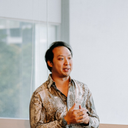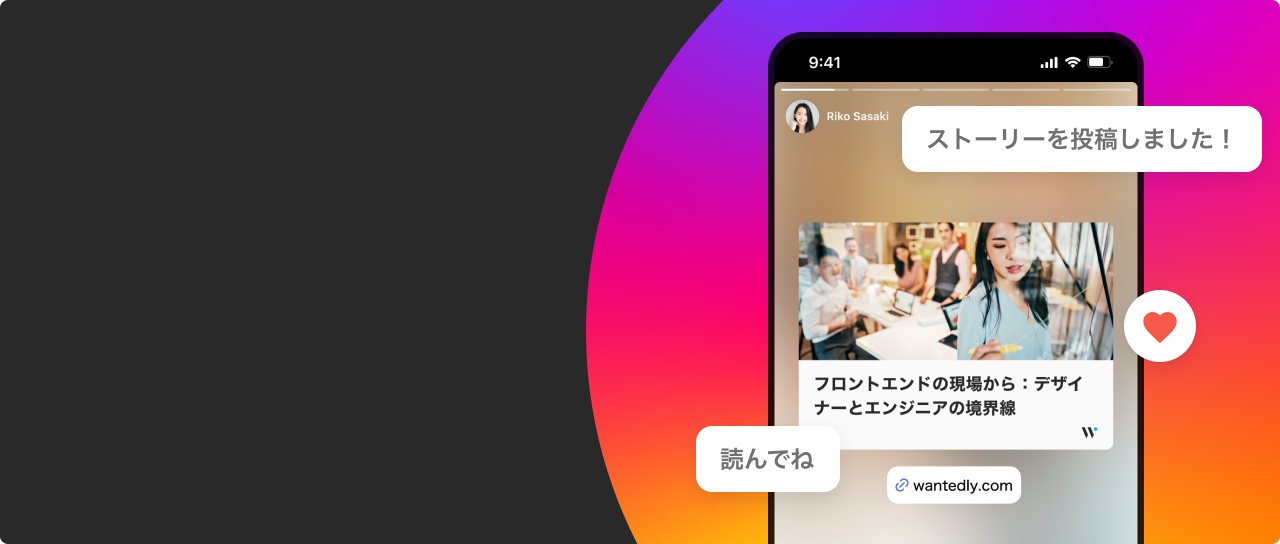Inclusive Employment: Alister Ong shares about navigating life with cerebral palsy and championing inclusivity as DEI Lead at Michael Page
Inclusivity is Empowering Everyone!
As part of Wantedly’s new series on inclusive hiring in partnership with i’mable by SGEnable, we talk to disabled employees and their employers to get to know more about their challenges, their culture, how they overcome, and thrive together to reach their goals.
We are honoured to kick off this series with Alister Ong. An avid grassroots and community leader, Alister has come a long way from his days of stage fright and counts public speaking, networking and strategic consulting gifts that he brings to the table.
As the DEI Client Solutions Lead at global recruitment firm Michael Page, Alister shares his lessons and triumphs navigating cerebral palsy and finding his career calling in the inclusion space.
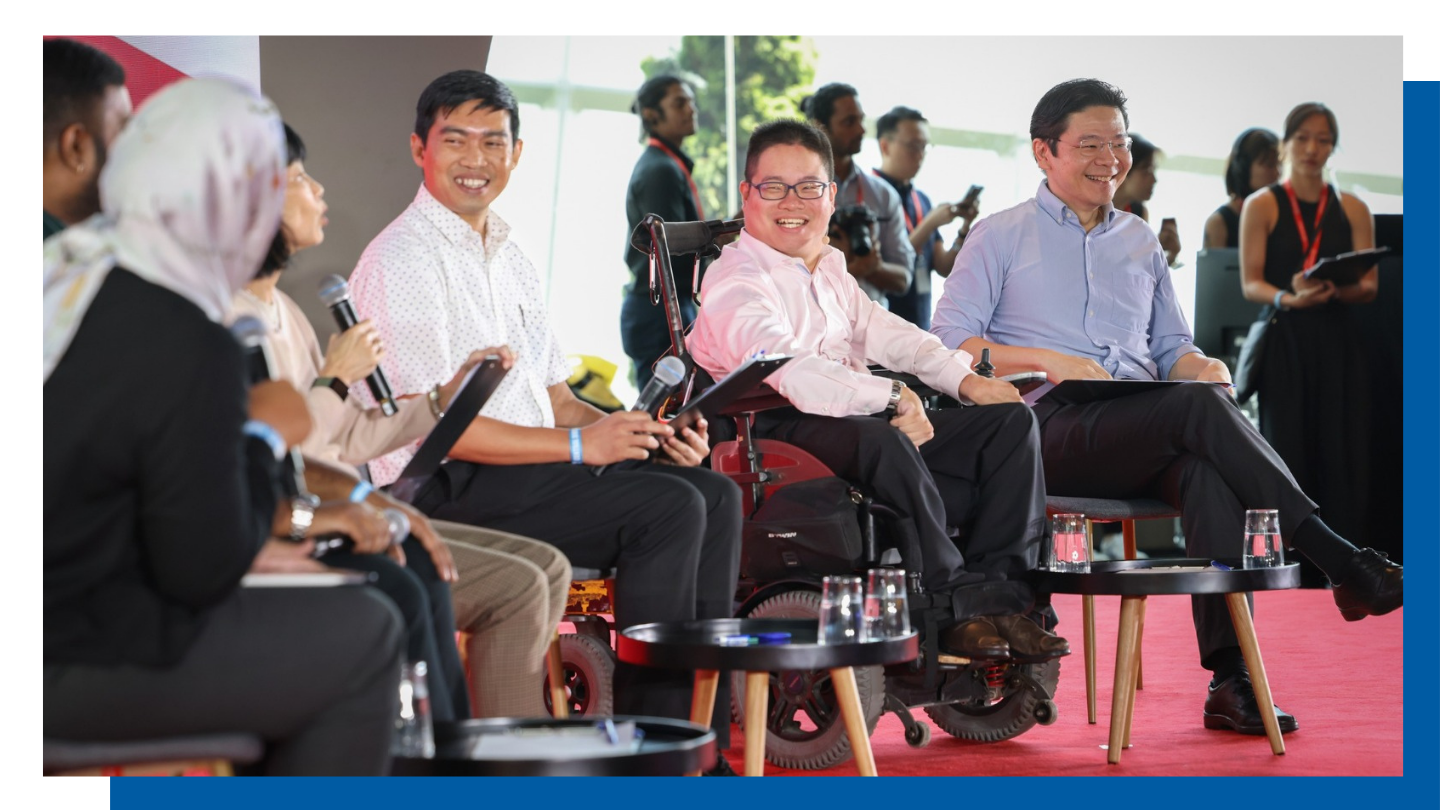
Alister, can you share more about your career and how it has led you to working at Michael Page today?
Throughout my entire career, I've always been involved in the inclusion space. What really led me to champion inclusive hiring and inclusion in society is because I was born with cerebral palsy.
When I was born, I did not cry and that caused a lack of oxygen to my brain. The part of my brain that controls my hands and legs were affected, and because of that, I now use a motorised wheelchair to move around, and in my earlier years had to have people push me to get around.
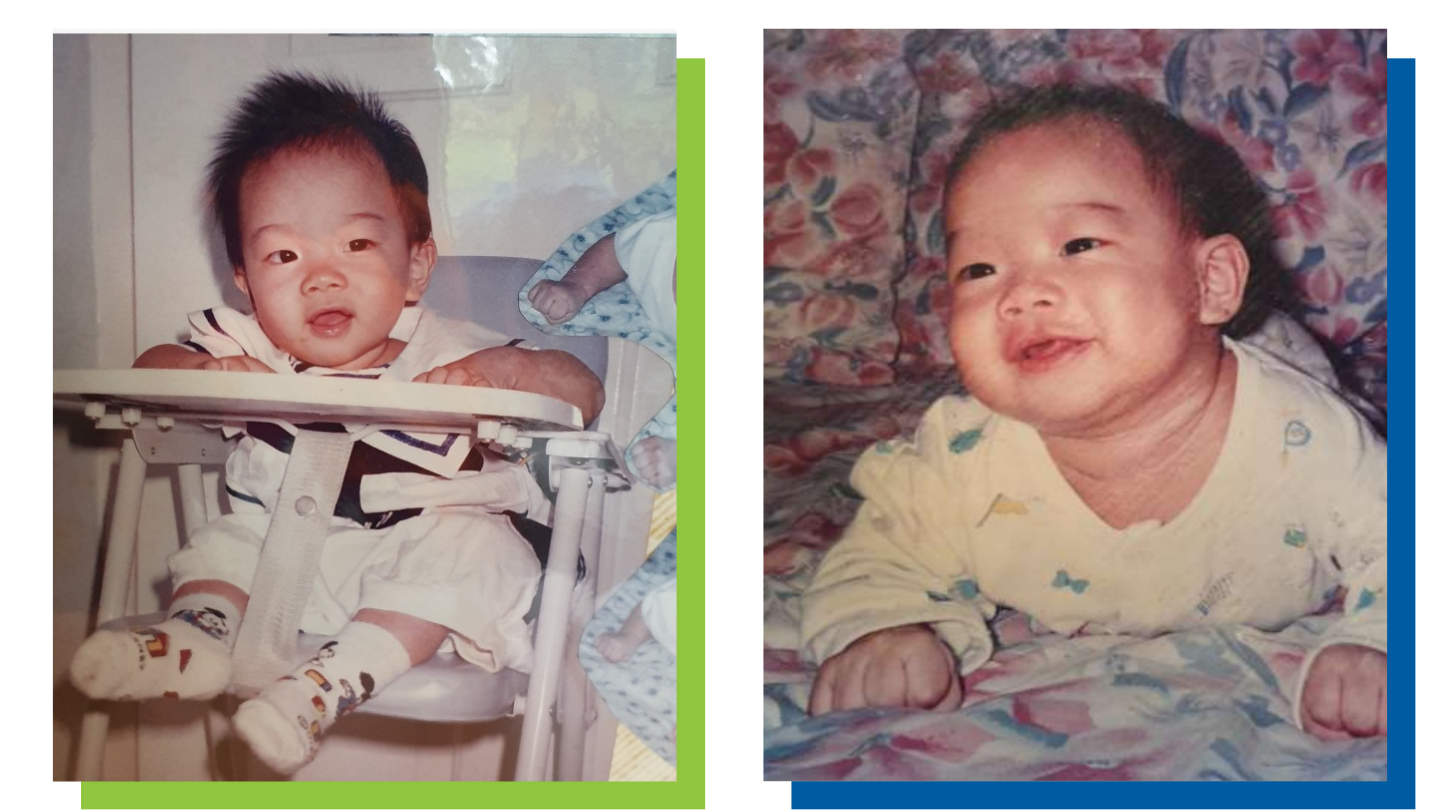
Back then, there weren't lifts or elevators in the train stations, and the buses didn't have ramps. Schools did not have lifts, and I was restricted in terms of where I can go and how I can interact with my friends. I was not able to go to the canteen, for example, or play with my friends.
And that kind of world and environment really shaped how my parents thought life would look like for me. My father would tell me to study hard to get into finance so that I can earn lots of money and stay home, and my mom would tell me to study hard too to become a home tuition teacher, also so that I can earn a lot and stay home.
Both had similar thoughts which they’d never discussed together. And sometimes I’d look back and jokingly say to myself, “Why did they advise me to stay at home? Did they foresee flexible work arrangements coming? That’s futuristic.” That was the world we lived in 20 to 30 years ago; it was hard to fathom how someone with a disability could get to the workplace.
I’ve since seen how society and workplaces have transformed to be more inclusive, and how we are more open to such conversations. Businesses have the responsibility to create an inclusive environment. It brings companies value when they hire persons with disabilities, and it adds diversity across the entire team.
That’s how I came into the inclusion space and why I champion inclusive employment.
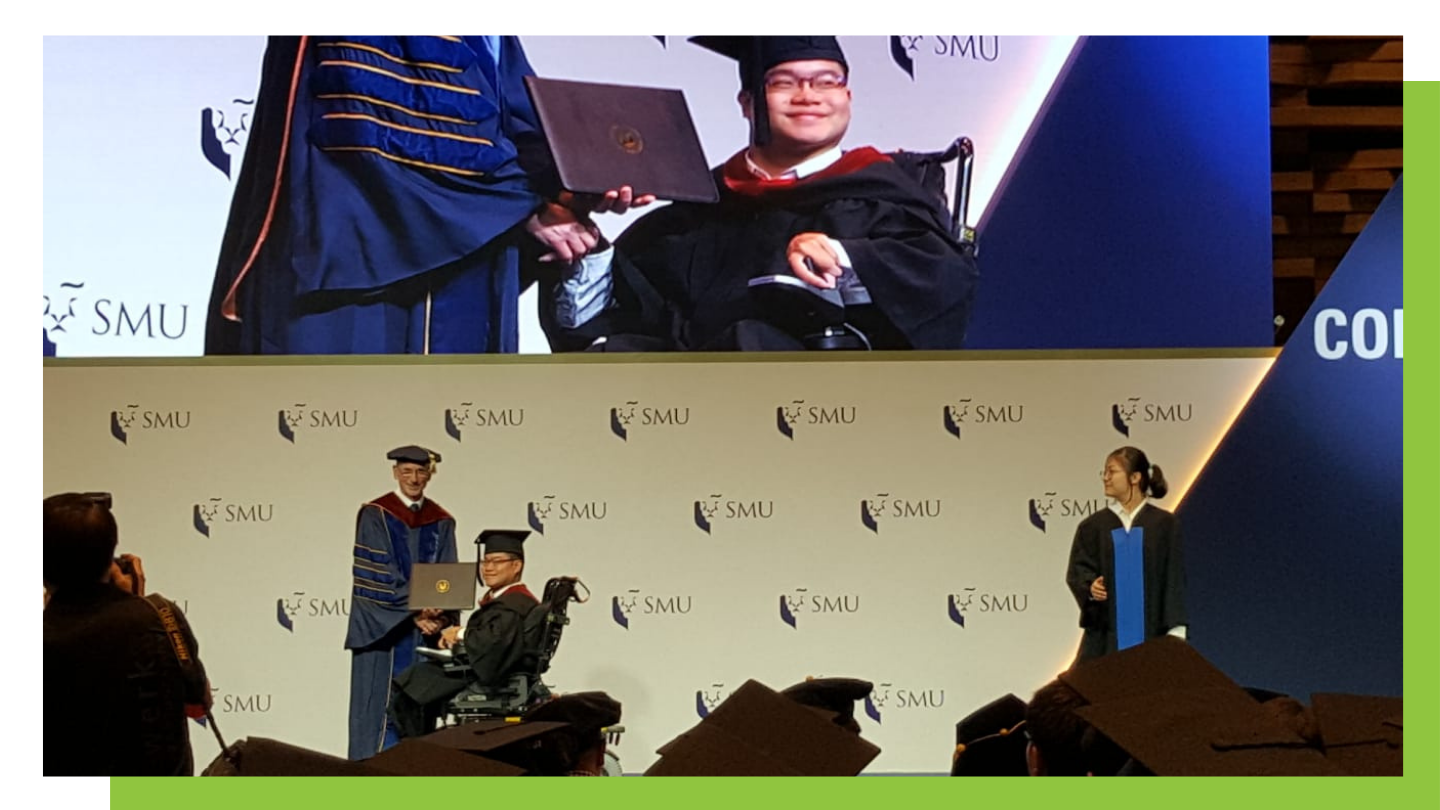
Can you share your experience with the hiring process for the different roles you have held?
The interview process for me for various jobs and roles have been quite good. When it comes to the job application process, one of the things that’s always on my mind is how and when should I share that I have a disability? Should I even share it? Logically, being a wheelchair user should not be in the resume, but do I need to put it in?
In my personal opinion, the resume should showcase the strengths that we have. And it's not needed to mention a disability because it should be about one’s strengths and what we can bring, value add and contribute to the workplace and to the role that they're hiring for.
But at the same time, if they are unaware, and I appear on that day in a wheelchair, they may be taken aback. They might not feel prepared for it.
With this in mind, I thought that the best way would be that when an employer calls me and reaches out for an interview, that’s when I’ll mention my disability. It’s a good time to do it as I’ll also need to check about the wheelchair accessibility of the place since I’ll be going down for the interview.
Thankfully there were times where interviewers were very happy and said they are very inclusive, but there were also other times where they have expressed concerns. They’d be worried if the workplace is accessible or not, and whether it’s a role fitting for someone with a disability. And as a whole it’s a great conversation to have at the start.
During the interview process, I think a lot about not just sharing how I can be set up for success like the accommodations that I need, but also the strengths that I can bring to the table too. I’ll share that typing may be challenging for me because I type with one finger at a time. But my strengths include connecting with people, speaking, presenting, connecting ideas and thinking strategically. I can also contribute with my lived experience, and provide insights from a different lens, adding different perspectives.
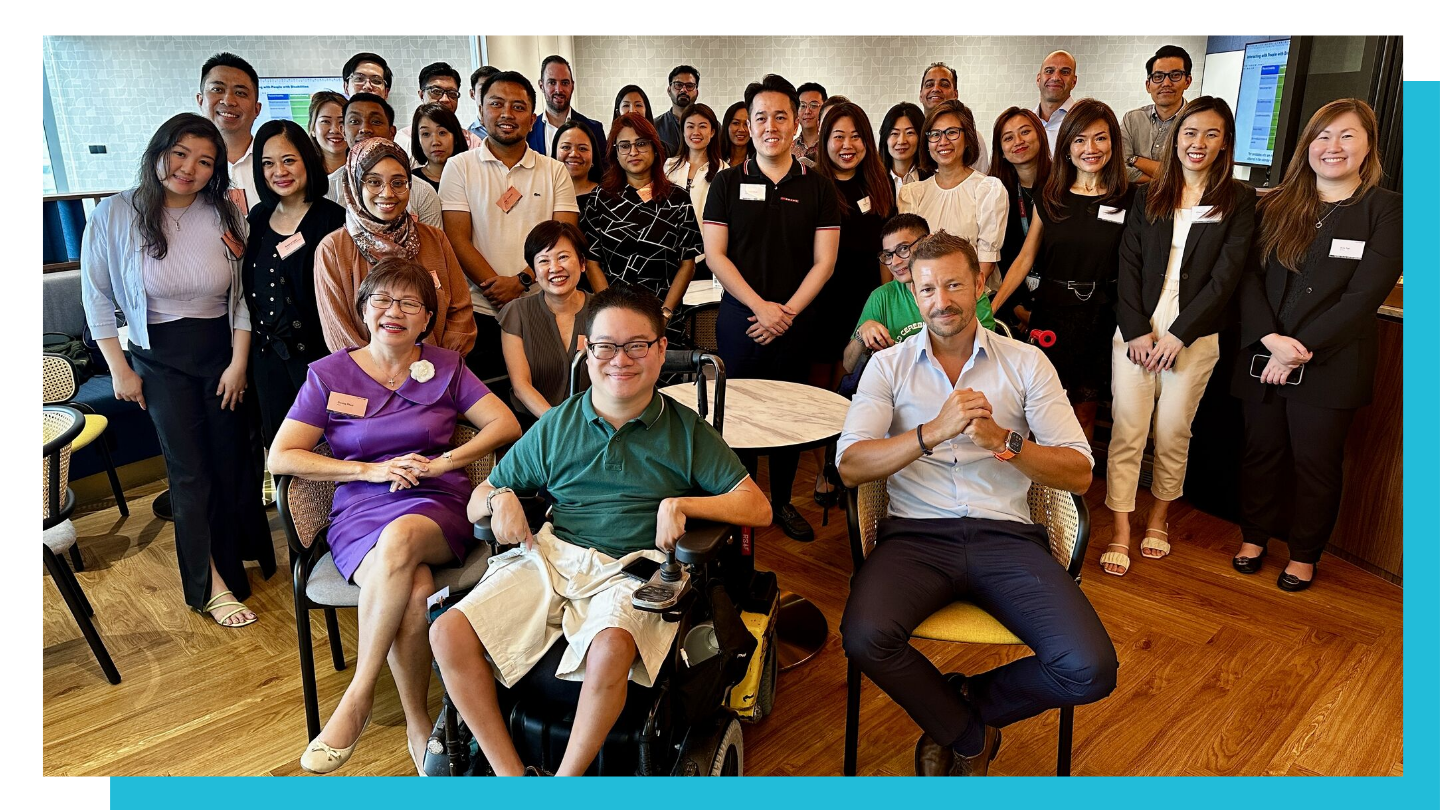
Across your professional experience, what are some takeaways you’ve had from employers? What are some of the biggest challenges you face in the workplace?
I learned that being real, authentic, and transparent - those are good values that we need to continue to have. And to not just focus on the challenges, but also to highlight the strengths and areas that we can contribute to in any company we’re in.
Whenever I’m first hired, I really appreciate when we’d get to sit down together as a team. They’ll ask questions around the help I’ll need getting into the office and even navigating the washroom. Those questions are very important, and they allow us to have an authentic and honest conversation.
If such questions weren’t asked, the challenge would be situations where there are a lot of assumptions. Colleagues may feel like they need to help a lot in an instance where I may be able to do something by myself. Or we may run into an situation where I may need help but they assume that I am able to do it on my own.
It’s important to know how much help is needed, when to ask for help, and when to offer help. We need to continue to have those important conversations.
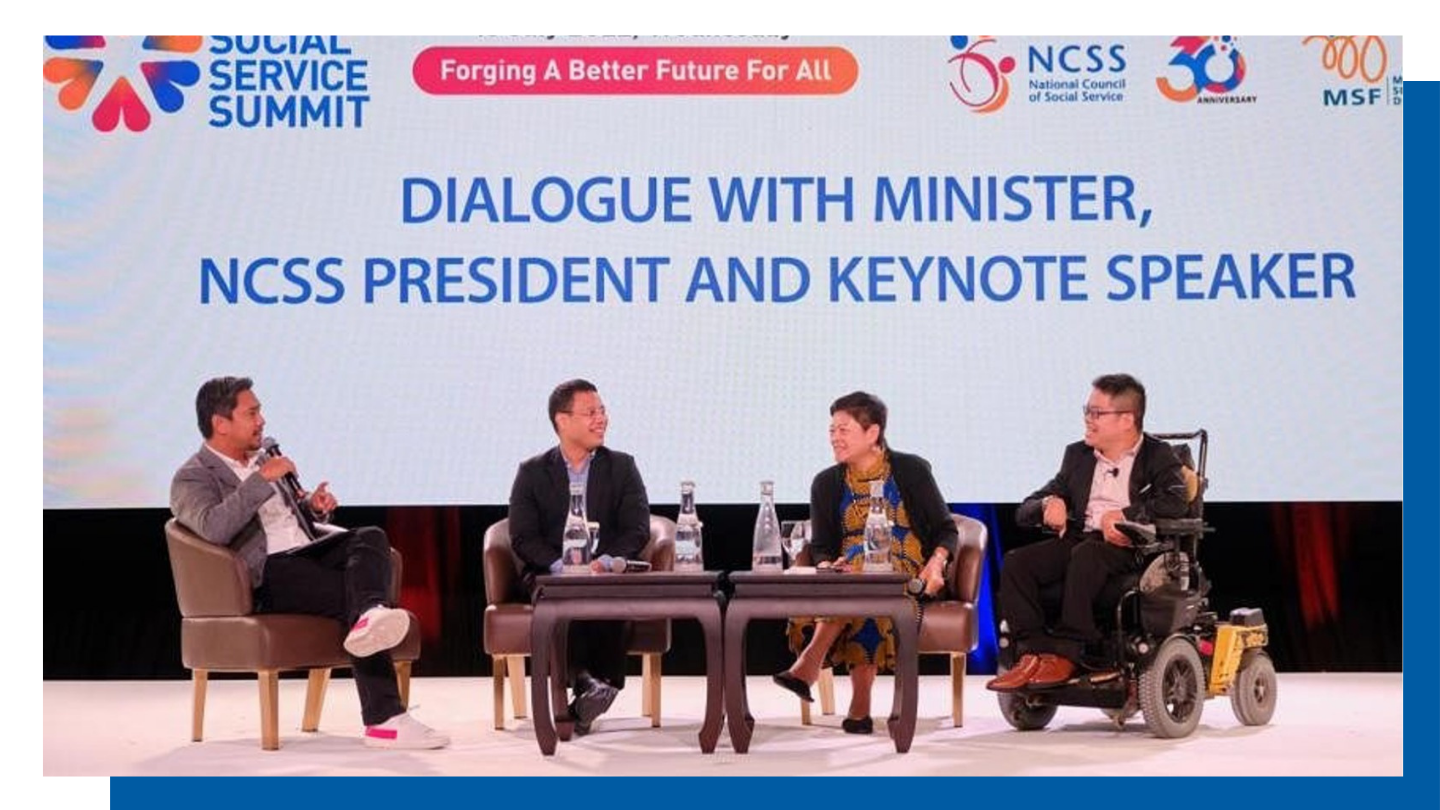
Through pursuing your career and ambitions, has there been an encounter that you have carried with you till today?
It would have to be my first overseas volunteering trip to the Philippines. I was in Junior College and back then I wasn’t someone who was able to do public speaking.
The volunteer leader from the Phiippines came around and said, “Hey Alister, I think you have a great story to share. I know this isn’t planned, but can you share it with us later?” I was eating the most delicious spaghetti and lost all my appetite when he said that. As much as I dreaded it, I did it and it was the first time ever sharing my story in that way.
When the session was over, many came forward and said that they were very blessed. They felt very encouraged and that got me thinking if sharing my story is something that could help others. Was that something that I could really give back to?
I came back from the trip and have had mentors continue to guide me along. They helped me to reframe what I thought of as barriers and challenges as growth. They gave me clarity on the areas that I can give and contribute. They helped me to see beyond my limitations. That’s been really valuable and they are words I still hold on to today.
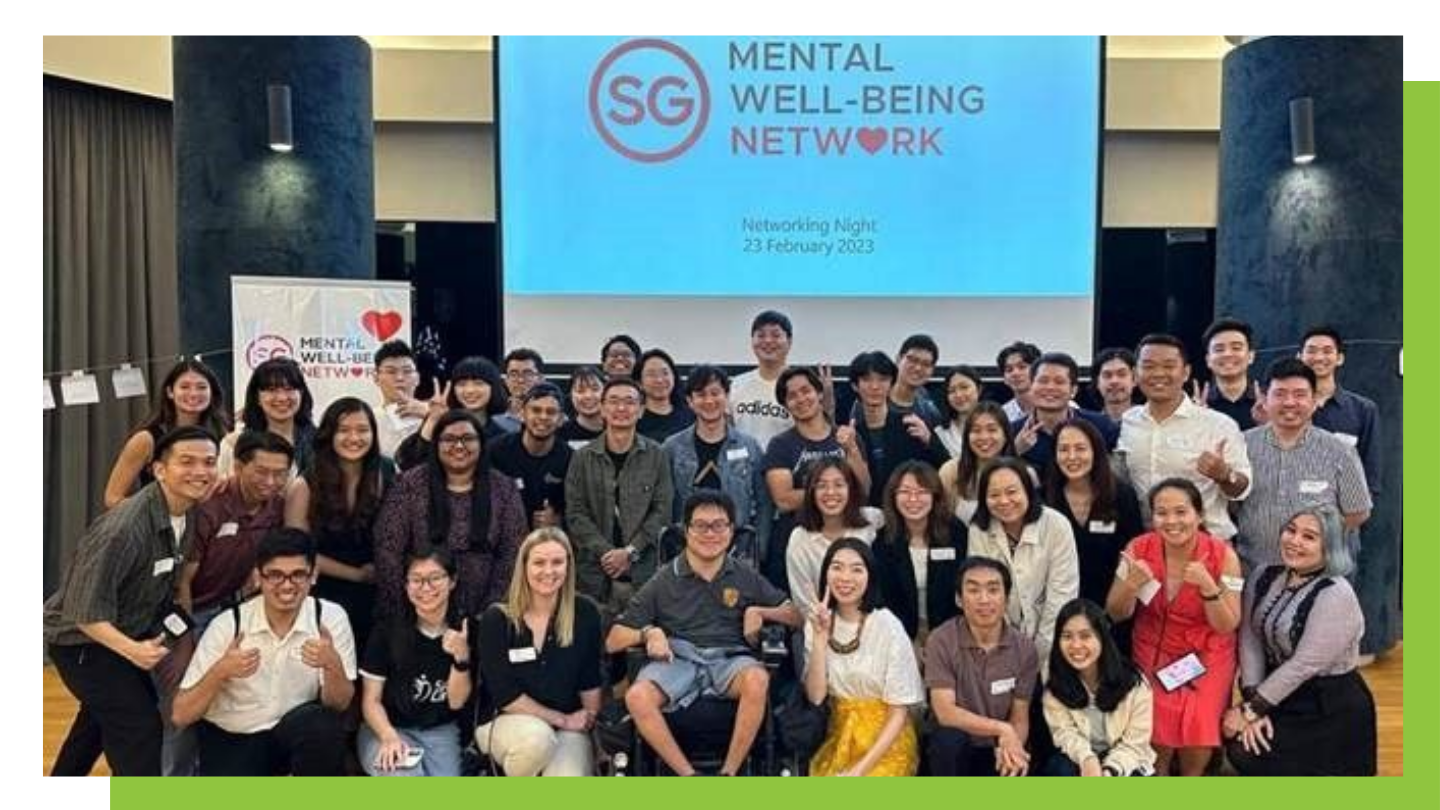
Can you share a recent win or something you are proud of?
I was very honoured to be part of the Forward SG panel together with our Prime Minister (PM) Lawrence Wong when it first launched. It was about having the voices from everyone being represented and getting to share with PM Wong the aspirations that we have for Singapore.
I appreciated that the voices of different people from various segments of society, even those voices who might not traditionally be heard much, were all included in this panel. I felt that our voices were heard.
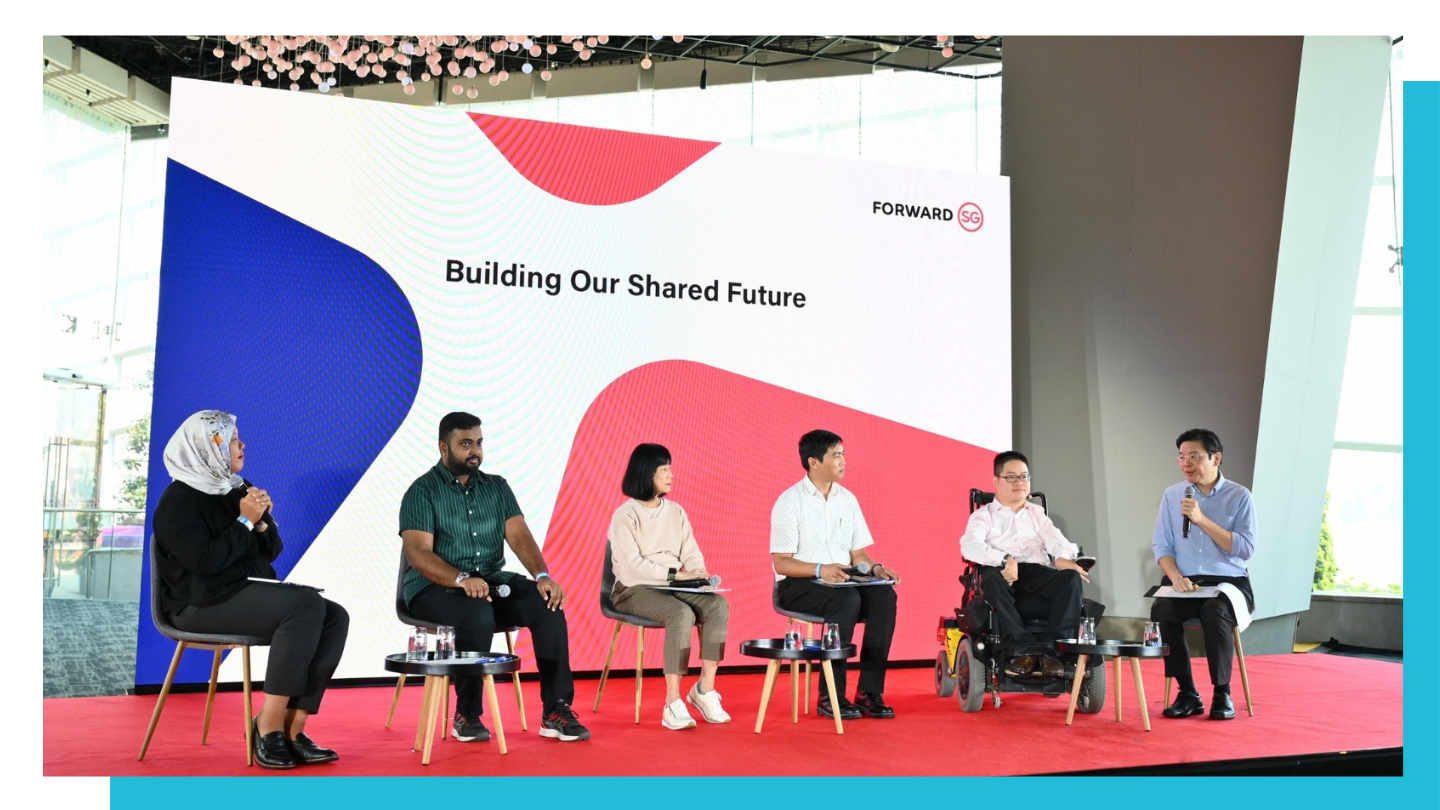
What motivates you and keeps you going?
I really enjoy seeing lives being transformed. I enjoy making a difference. Whenever I see the smiles on the faces of the people I interact with, that keeps me going. Sometimes when I share my most vulnerable moments and see the tears in people’s eyes, it shows that we resonate with one another.
I'm just very thankful to be able to play a small part in the lives of others, and I hope that what I do continues to spur people on, to remind them that there’s hope and a future. There’s purpose in life and that we all have a calling.
I do what I do in the hopes to help others realize the inner strength and resilience that we all have inside of us as a humanity.
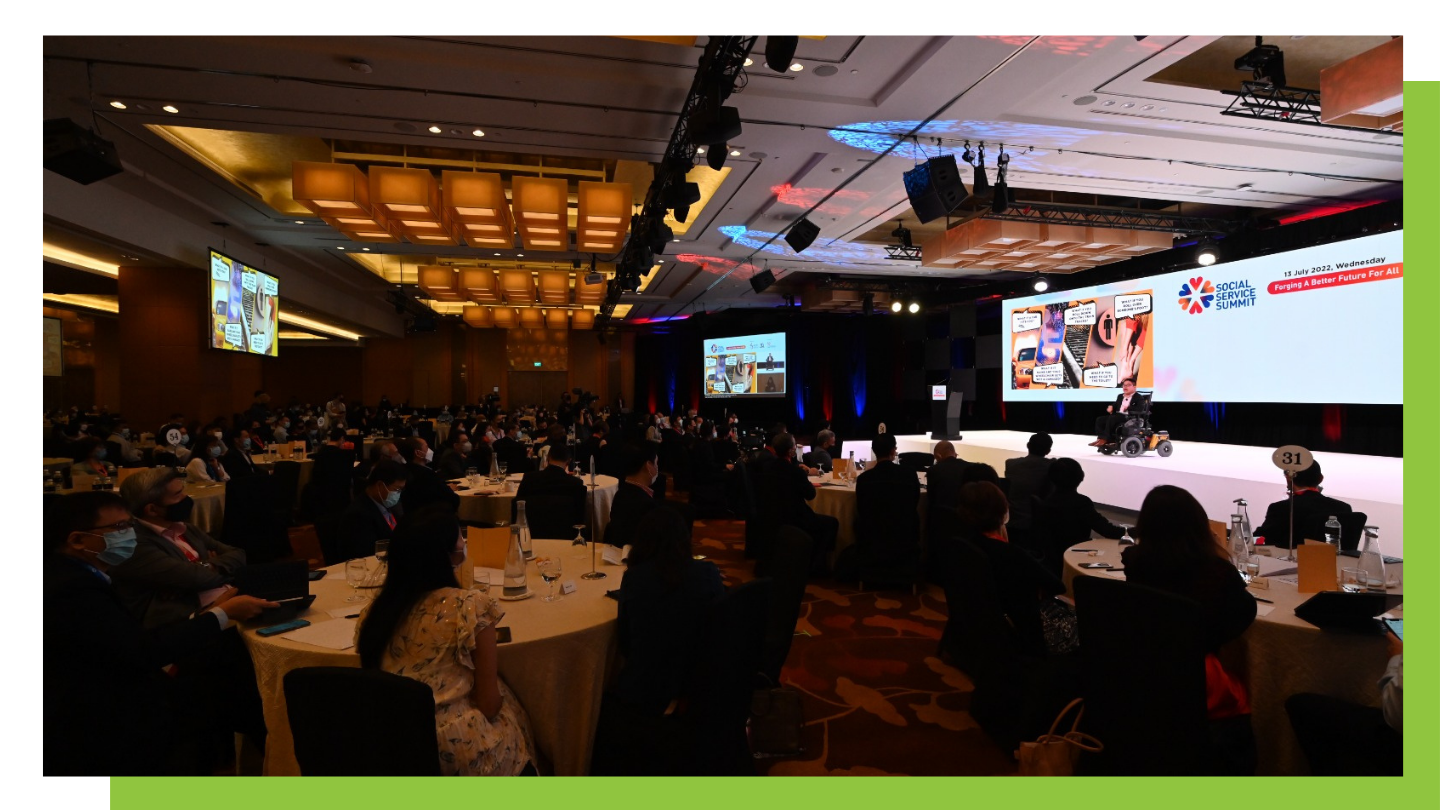
What do you wish companies and organizations can do more of to support Persons with Disabilities employees?
All levels - from the policies to management - need to be aligned in the direction of the business for inclusivity to work.
Inclusivity is not charity, sympathy, pity or tokenism. We have to do it because we believe in it, and we know that it brings value to the business when companies are inclusive and champion disability inclusion.
It’s very important to create that kind of conversation - that inclusion is equity. When we have reasonable accommodations and adjustments, it's equity rather than equality.
These conversations need to happen within organizations and companies so that when we embark on this journey, we are able to have the right frame of mind and an aligned approach.
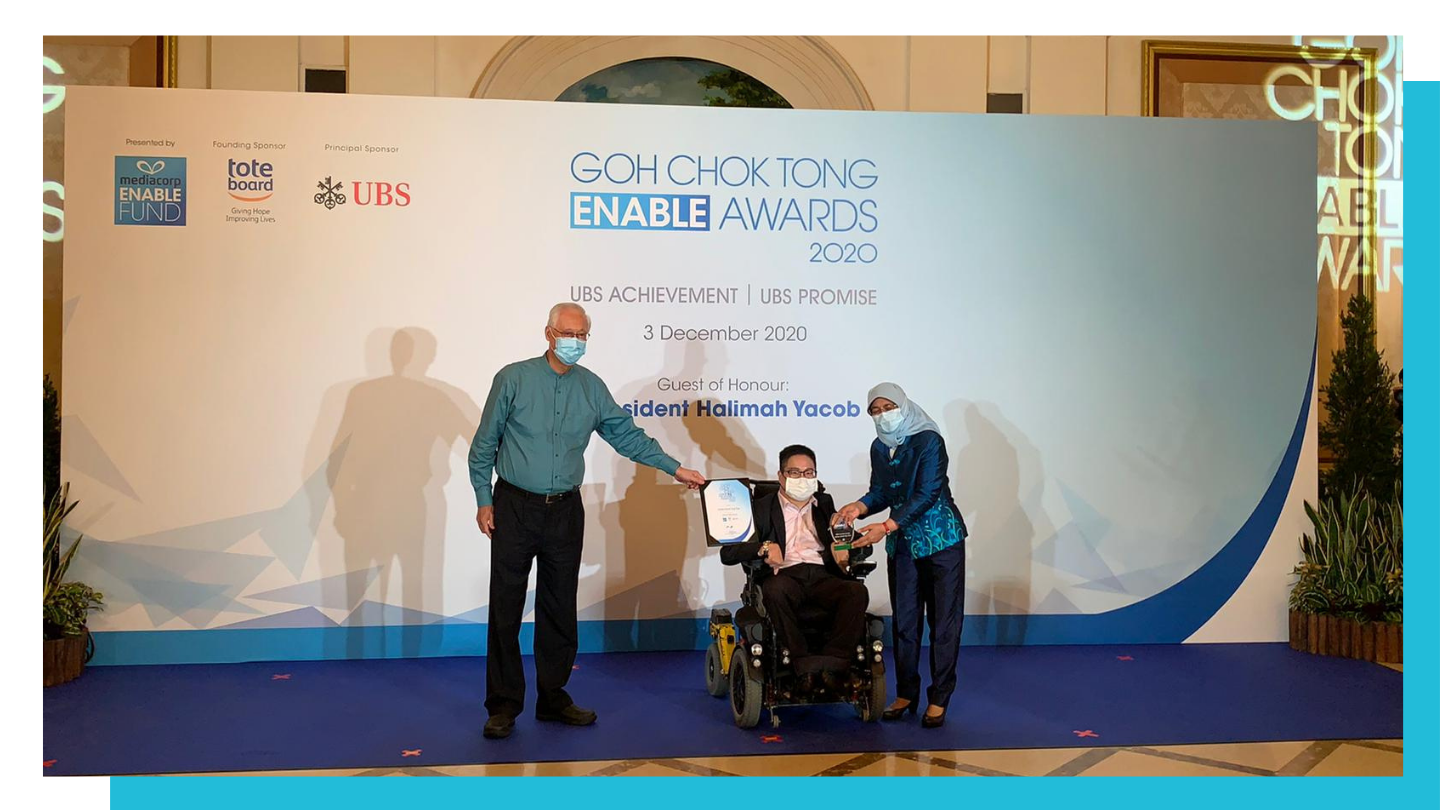
How do you envision the future of work?
I hope that one day, we won’t be talking about inclusion anymore. And it’ll be because we have done it so well that we don’t have to talk about disability inclusion.
I envision that we will live in a world where persons with disabilities are already included, and everyone takes it upon ourselves as a responsibility to be inclusive. In this world, everyone is playing a part.
I like the analogy of us using eyeglasses or contact lens on the daily. During a job interview, you hardly get asked about your eyesight, whether it’s perfect, and whether you wear eyeglasses. Sometimes when I poll my audience during a presentation, people with perfect eyesight make up the minority. Using this example, is our definition of disability a social construct?
I really hope that in the future of work, as we continue to advance with greater technology, we can remove barriers and limitations, so that a disability today will not be considered a disability tomorrow.
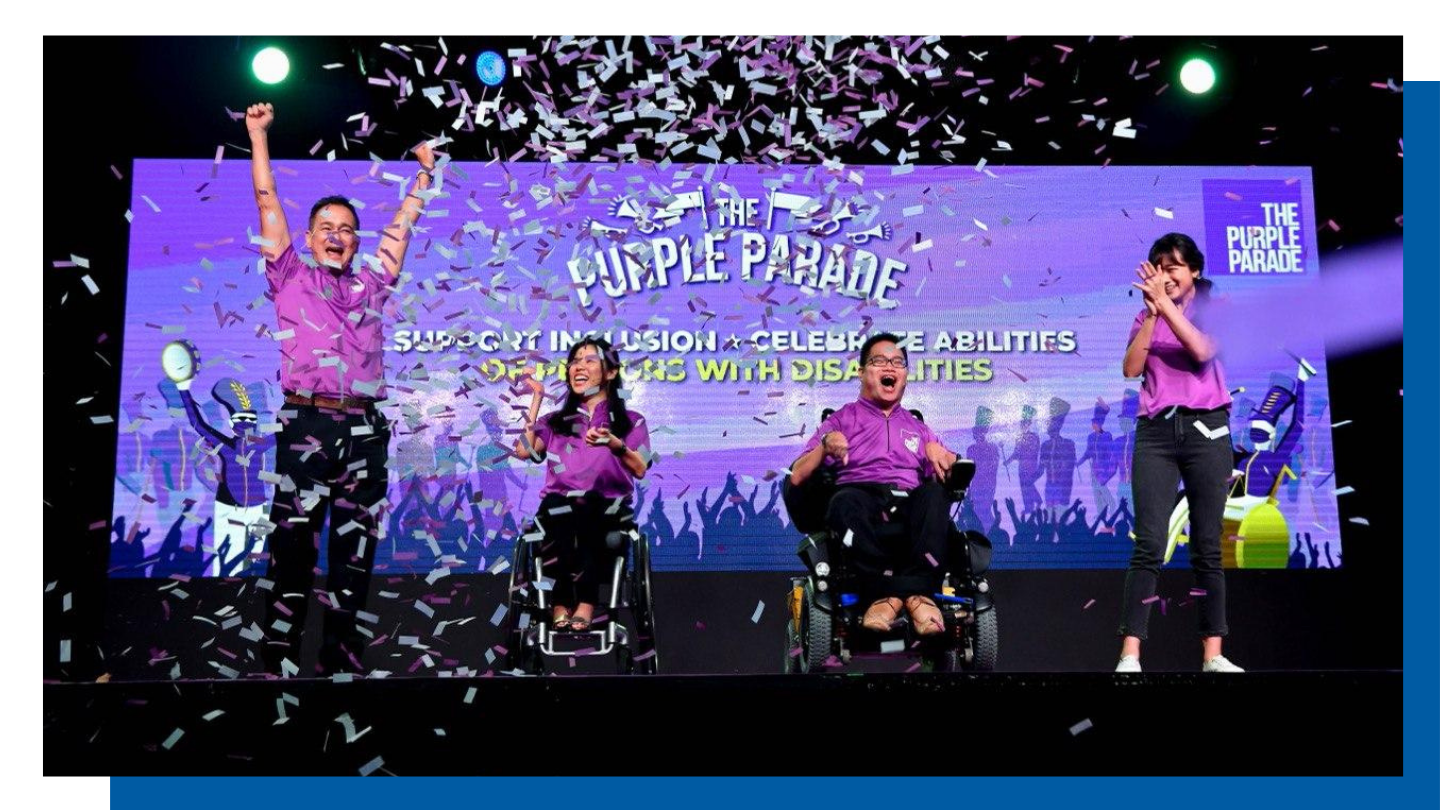
Thank you, Alister!
About the campaign
Inclusivity is Empowering Everyone! is a Public Education for Disability Inclusion campaign by Wantedly Hire in partnership with i’mable by SGEnable.
For more inspiring stories on Inclusive Employment, you can follow the series here.
Our public inclusive Job Portal is now live.
If you are an inclusive employer and wish to list your openings, please send your JDs to andrew@wantedly.com.
About i’mable by SGEnable
i’mable celebrates the abilities of persons with disabilities and encourages everyone to take positive action for disability inclusion and commit to building a more inclusive society and enabling lives.
About Wantedly
Our mission is to create a world where work drives passion. We champion employer branding for companies to attract the right talents for the right opportunities. Wantedly Hire is an application tracking system optimised for modern hiring practices.
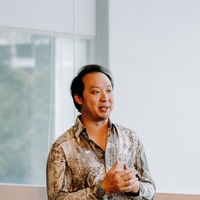

/assets/images/7053115/original/43c7433b-4920-4cf1-b0b0-c44aec7bd947?1624242511)
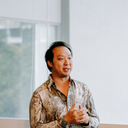
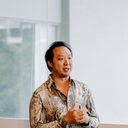
)/assets/images/7053115/original/43c7433b-4920-4cf1-b0b0-c44aec7bd947?1624242511)
/assets/images/21203425/original/43c7433b-4920-4cf1-b0b0-c44aec7bd947?1748276522)
